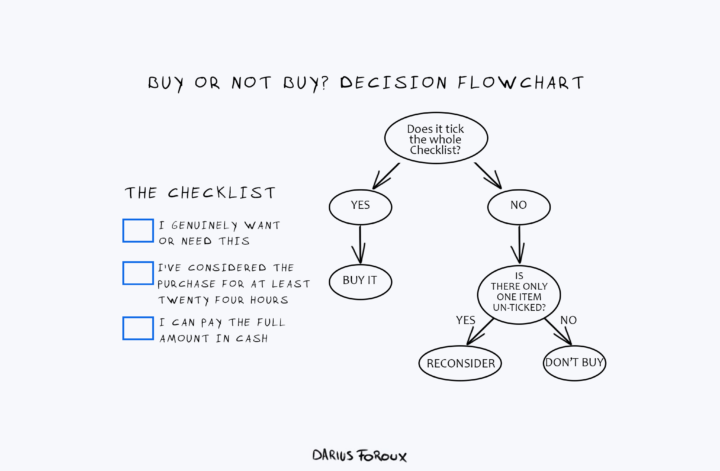Consider two artists: MC Hammer and Chamillionaire. Most people know the former because he famously went broke in the 90s despite earning millions of dollars. It’s a good case of money fallacy that many people who earn well often ignore.
MC Hammer made 37 million dollars. But he spent 50. And when he declared bankruptcy in 1996, he had 13 million dollars of debt.
Now, look at Chamillionaire, who just like Hammer, was popular for a few years. When I was in college, he had a famous song called Ridin Dirty. I was never a fan and never heard about Chamillionaire again until a few years ago.
I read that used the money he made during those few years he was popular to invest. Now, he’s worth at least 50 million dollars.
Enter: The extrapolation bias
In the world of behavioral science and finance, there’s a concept called “overextrapolation” or “extrapolation bias” which refers to the assumption that past returns equal returns (the terms are used interchangeably).
According to one paper by Purdue scientists, Cassella and Gulen, “An extrapolative investor believes that recent high returns are more likely to be followed by high returns, and similarly, recent low returns are more likely to be followed by low returns.”1Source: Illinois.edu
We tend to make the same mistake when it comes to personal finance. This is something that almost every person falls for, whether it’s a writer, investor, artist, knowledge worker, health care worker, and so forth.
When we earn well for a short amount of time, we expect that the checks will keep coming. To me, this is the biggest money fallacy of our careers.
MC Hammer spent more than he earned. Why would a person do that? When they expect they will keep making money so they can pay for it later.
But what if the money stops coming in?
My experience with Medium earnings
The publishing platform Medium distributes the income they receive from members to their writers. I never paid attention to how they do it, I just focused on writing articles for readers.
In the beginning, there were relatively few writers and many readers. For the first two years, my earnings (or royalties) were on pace with six figures a year. As you can expect, I was very pleased with that.
But I never got too excited. I’d learned about too many stories of online entrepreneurs who got used to earning money on certain platforms… until the platform changed their rules.
This is how many Facebook marketers went broke around 2015 and 2016 when there was a massive shift to Instagram. I had seen a similar thing with people who were heavily involved in SEO. That worked until it didn’t. Google suddenly changed its rules and those folks went out of business.
Starting in 2020, more and more writers came to Medium. Naturally, the competition increased. And the pie had to be shared with more writers.
Earnings collapsed for many authors, including myself. But since I never expected that the checks would come in, I never got sour on Medium. I still think it’s a great platform.
Accept chaos over order
For the past few years, I’ve been very interested in Chaos Theory. The basic assumption is that life is increasingly becoming more complex and chaotic.2Source: Science Direct
Take the world of economics for example. Until a few decades ago, economics was largely a matter of supply and demand. The field was full of order and rules, which actually translated really well to practice.
Those rules no longer apply.
We have made economics 10X more complicated and unstable through government policies and a shift in psychology, from the population (who expect the government to help more), and also politicians (who think they actually should help more).
Chaos Theory is still a new field and scientists are heavily researching its applications in different fields.
One thing we can say with certainty is that nothing is stable. You know how people say, “The only two certainties in life are death and taxes.”
Even taxes are not stable. The amount of tax we have to pay is continuously up for discussion.
What this means to us—people who are trying to make the best of our individual lives—is we can never expect good things to last. And
While that might sound depressing, it’s not. What’s more important is that we can also expect that bad things will not last.
Be prepared: Good and bad
What I appreciate about Chamillionaire is that he didn’t waste his money and expect he would be on top forever. He realized the majority of musicians will not stay popular for a long time. When things went well, and he was earning good money, he started investing.
This is an important life lesson that so many of us have learned from the elders in our family.
- Invest and save during good times
- So you can get through tough times
What matters is that we never expect anything to last. Life is in constant motion.
This also means that bad times will not last.
I write this in October 2022, and sometimes it seems that this inflation problem will never go away. There are certainly many doomsday Nostradamuses out there who predict the collapse of the west and the dollar.
These people extrapolate. Instead, adopt a more sophisticated (and balanced) view.
Respect chaos. Good times don’t last. Bad times don’t last. Life changes all the time.
And that’s what makes it exciting the be alive.




